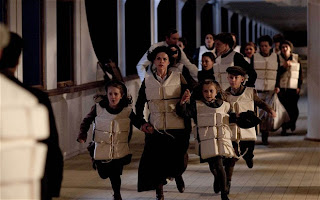James Buchanan
Learn more about James Buchanan’s niece who served as First Lady, Harriet Lane.
American President
Facts at a Glance
Term
Born
April 23, 1791, Cove Gap (near Mercersburg), Pennsylvania
Schooling
Dickinson College (graduated 1809)
Religion
Presbyterian
Marriage
None
Career
Lawyer
Political Party
Democrat
Writings
Mr. Buchanan’s Administration on the Eve of the Rebellion (1866);
Died
June one, 1868, near Lancaster, Pennsylvania Buried
Father: James Buchanan (b. 1761, d. 14-May-1833)
Mother: Elizabeth Spear Buchanan (b. 17-Mar-1767, d. 14-May-1833)
Sister: Mary Buchanan (b. 1789, d. 1791)
Sister: Elizabeth Jane Buchanan Lane (mother of Harriet Lane, b. 1793, d. 1839)
Sister: Maria Buchanan Magi Johnson Yates Frank (b. 17-Dec-1795, d. 1849)
Brother: Sarah Buchanan Houston (b. 4-Nov-1797, d. 27-Jan-1825)
Brother: Elizabeth Buchanan (b. 8-Mar-1800, d. 28-Aug-1801)
Brother: Harriet Buchanan Henry (b. 5-Aug-1802, d. 23-Jan-1840)
Brother: John Buchanan (b. 24-Nov-1804, d. 5-Dec-1804)
Brother: William Spear Buchanan (b. 2-Oct-1805, d. 19-Dec-1826)
Brother: George Washington Buchanan (b. 16-Apr-1808, d. 26-Sep-1832)
Brother: Edward Young Buchanan (minister, d. 30-May-1811, d. 25-Jan-1895)
Girlfriend: Ann Coleman (b. circa 1796, dated and engaged late 1810s, d. 1819 suicide)
Girlfriend: Julia Gardiner Tyler (future spouse of John Tyler, b. 1820, dated 1842, d. 1889)
Woodward Hill Cemetery, Lancaster, Pennsylvania
A Life in Brief
He failed entirely. In the work of his administration, the Union broke apart, and when he left office, civil war threatened.
Tall, stately, stiffly formal in the high stock he wore around his jowls, James Buchanan was the only President who seldom married.
Presiding over a quickly dividing Nation, Buchanan grasped inadequately the political realities of the time. Relying on constitutional doctrines to close the widening rift over slavery, he failed to understand that the North would not accept constitutional arguments which favored the South. Nor could he recognize how sectionalism had realigned political parties: the Democrats split; the Whigs were destroyed, giving rise to the Republicans.
Born in to well-to-do Pennsylvania relatives in 1791, Buchanan, a graduate of Dickinson College, was gifted as a debater and learned in the law.
He was selected times to the House of Representatives; then, after an interlude as Minister to Russia, served for a decade in the Senate. He became Polk's Secretary of State and Pierce's Minister to Great Britain. Service abroad helped to bring him the Democratic nomination in 1856 because it had exempted him from involvement in bitter domestic controversies.
As President-elect, Buchanan thought the crisis would disappear if he maintained a sectional balance in his appointments and could persuade the people to accept constitutional law as the Supreme Court interpreted it. The Court was considering the legality of restricting slavery in the territories, and two justices hinted to Buchanan what the decision would be.
Thus, in his Inaugural the President referred to the territorial query as "happily, a matter of but little practical importance" since the Supreme Court was about to settle it "speedily & finally."
Days later Chief Justice Roger B. Taney delivered the Dred Scott decision, asserting that Congress had no constitutional power to deprive persons of their property rights in slaves in the territories. Southerners were delighted, but the decision created a furor in the North.
Buchanan decided to finish the troubles in Kansas by urging the admission of the territory as a slave state. Although they directed his Presidential authority to this aim, they further angered the Republicans & alienated members of his own party. Kansas remained a territory.
When Republicans won a plurality in the House in 1858, every significant bill they passed fell before southern votes in the Senate or a Presidential veto. The Federal Government reached a stalemate.
Sectional strife rose to such a pitch in 1860 that the Democratic Party split in to northern & southern wings, each nominating its own candidate for the Presidency. Consequently, when the Republicans nominated Abraham Lincoln, it was a foregone conclusion that they would be chosen although his name appeared on no southern ballot. Than accept a Republican administration, the southern "fire-eaters" advocated secession.
President Buchanan, dismayed & hesitant, denied the legal right of states to secede but held that the Federal Government legally could not prevent them. They hoped for compromise, but secessionist leaders did not require compromise.
Then Buchanan took a more militant tack. As several Cabinet members resigned, they appointed northerners, & sent the Star of the West to over reinforcements to Fort Sumter. On January 9, 1861, the vessel was far away.
Buchanan reverted to a owner of inactivity that continued until they left office. In March 1861 they retired to his Pennsylvania home Wheatland--where they died seven years later--leaving his successor to resolve the frightful issue facing the Nation.
Perhaps Buchanan’s most important contribution to economics is his distinction between two levels of public choice—the initial level at which a constitution is chosen, and the post constitutional level. The first is like setting the rules of a game, and the second is like playing the game within the rules. Buchanan has proselytized his fellow economists to think more about the first level instead of acting as political players at the second level. To spread this way of thinking, Buchanan even started a new journal called Constitutional Economics.
Buchanan also believes that because costs are subjective, much of welfare economics—cost-benefit analysis, and so on—is wrongheaded. He spelled out these views in detail in Cost and Choice, an uncommonly impassioned economics book. Yet Buchanan has not persuaded most of his economist colleagues on this issue.








.jpg)
.jpg)






































